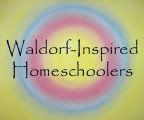In the Hand book of Nature Study by Anna Botsford Comstock, 1911 she writes:
Nature-study cultivates the child's imagination , since there are so many wonderful and true stories that he may read with his own eyes, which affect his imagination as much as does fairy lore....bringing to him a love of the beautiful; it brings to him early a perception of color, form, and music.This book has become my new favorite for homeschooling. Ms. Comstock was an early elementary teacher and staunch advocate for moving the classroom outside as much as possible. In this amazing tome she entreats all teachers to let their students observe freely, learn to question and revel in the joys of discovery.
Plus, this "handbook" (900 pages!) lists, by subject information on virtually everything in the observable natural world. Ok, this is probably an exaggeration, but hey it seems like a lot. If there is something we want to observe I just check the book on where to find it. The book also gives a short lesson for each subject. These are basically, open ended questions about the bug, flower, tree or mammal that you might be watching - ways to get the discussion going.
Thus far we have not created a good book for natural science. We've done no fact searching or elaborate drawing - I'm sure this might emerge, Nightowl loves to draw, but it's not part of the lesson. For now we are watching. This is a challenge for me, too, as I'm a library junkie and most inclined to use the library info center or look up a topic on Google. Following my nose is not my first inclination. Got a question? Look it up in a book. Well for now, we're trying not too.
In regard to doing - we're cooking. The kitchen has become our lab. We are working together to create meals and process food for the winter. We've been experimenting with natural fermentation (via Nourishing Traditions). We've made fermented ginger-carrot relish, yogurt, and fermented grains for breakfast and baked goods. We've learned to can, and to be careful when handling knives. We've harvested and dried our herbs.
Nightowl is itching to try natural dyeing, make our own cheese, and harvest yeast spores from the air (sourdough). And while working in our lab we discuss what we eat, what our food eats, and where food comes from.
My views on food and food production changed recently when I read Michael Pollen's: The Omnivore's Dilemma and Animal, Vegetable, Miracle by Barbara Kingsolver. This amazing book has influenced our homeschooling. As a family we are trying to lower our food mileage - better for the planet and better for us. We want our food as natural as it can be - grass fed meats, local produce. We talk about how we eat what our food eats - and what do we really want to eat? Interestingly we all like our food better when we view it this way. Nightowl is taking a class on permaculture and it is influencing her choices regarding water, planting, cooking, using the car, and nature.
I have also noticed that the way she interacts with nature is quieter, more reflective and more purposeful. Recently, she mentioned that she wanted to learn more about bats. "How shall we do that?" I asked her. "I guess we'd better go out and find some." she replied. I think Ms. Comstock would be proud.



No comments:
Post a Comment